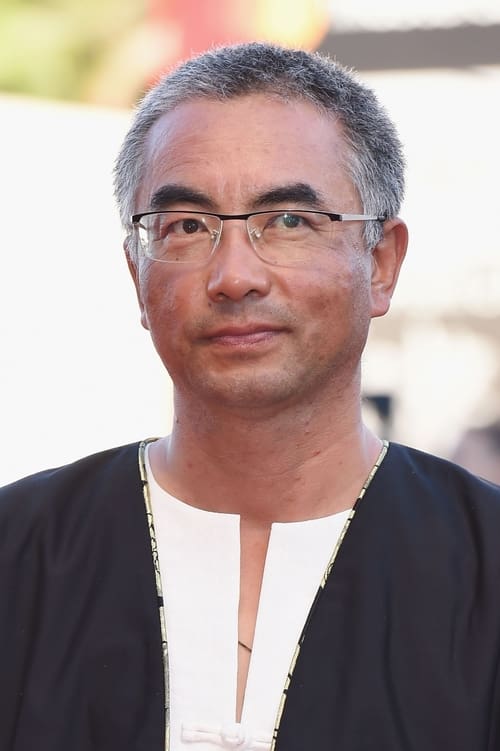Pema Tseden
出生 : 1969-12-03,
略歴
Pema Tseden (Tibetan: པད་མ་ཚེ་བརྟན།, Wylie: pad ma tshe brtan), also called Wanma Tsaidan (simplified Chinese: 万玛才旦; traditional Chinese: 萬瑪才旦; pinyin: Wàn mǎ cái dàn; born December 1969), is a Tibetan film director and screenwriter of Chinese citizenship. He is a member of the China Film Directors' Guild, China Film Association and Chinese Film Literature Association.

Supervising Producer
A folk performer brings his animals to the streets. Two thugs' unreasonable demands make everything more absurd. The film shows a circus in a gradual "mutilation" and portrays a man struggling in his life.

Writer
This is a story about how people and animals finally get along. A snow leopard breaks into the sheep pen of a nomad and kills nine rams. Father and son then argue: the son insists on killing the snow leopard, but the father insists on releasing it.

Director
This is a story about how people and animals finally get along. A snow leopard breaks into the sheep pen of a nomad and kills nine rams. Father and son then argue: the son insists on killing the snow leopard, but the father insists on releasing it.

Producer

Producer
It’s the late 1990s in a remote Tibetan forest where poaching is widespread. A ranger is visited by one man after another, all strange...
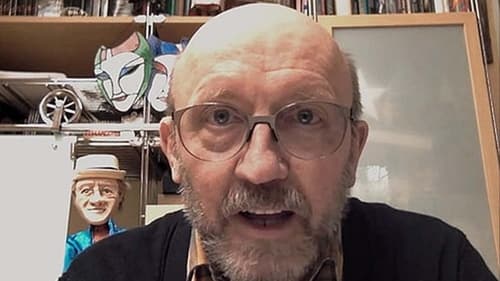
Self
The film was inspired by one of the most important documentaries shot by Krzysztof Kieślowski, Talking Heads (1980). The director asked his interlocutors seemingly simple questions, such as “Who are you?” and “What do you want?”.

Executive Producer
Zhusheng's father suddenly died under the watchful eyes of the old dog. The dog witnessed the whole process of Luo's arrangement of his father's funeral. When Luo is embalming his father's body, outside in the forest comes a gunshot. As the forest ranger, Luo has to put down his father's body and patrol the forest. During the night, Luo sits alone on top of the hill, and he can't help crying bitterly. On their way home, Luo and the old dog rescue a lamb that has almost been eaten by a wolf. Luo takes the injured lamb home, give it herbal medicine, and the lamb gradually recovers. Luo continues to handle his father's funeral affairs in an orderly way. He digs the grave, prepares a hearth, makes dough figures, and the coffin. He follows the ancient rituals handed down from generation to generation in every process. At this moment, the dog, his companion, smells danger outside the door. The wolf is approaching…

Producer
In A Song for You – a road movie and a music industry insider comedy, with lots of songs – young Ngawang leaves behind a nomadic existence on the Tibetan plateau for big city Lhasa nightclubs. His dream is to record an album and be heard around the country. Cutting an album costs money, which he doesn’t have. One day he meets a woman who looks just like his Loyiter, a talisman of the goddess of art and music. Impossible, says his father, as only the pure of heart meet her, only in their dreams. But, Ngawang perseveres. She takes him on a journey of discovery through life and love.

Producer
Xiao Henan, who first entered the society, wanted to have a love but was injured by work. The webmaster monkey is a recidivist who is very uncomfortable with the work and loses his job because of the contradiction with the boss. The printing house owner was threatened by the lover, and was asked by Xiaohe several times for compensation, and the factory was facing bankruptcy. Four characters, the same way, who will God bless?

Screenplay
On the Tibetan grasslands, Darje and Drolkar live a serene and ordinary life with their three sons and the grandfather. A condom sparks a series of embarrassment and dilemma, breaking the harmony of the family. What matters more in the circle of life and death, soul or reality?

Director
On the Tibetan grasslands, Darje and Drolkar live a serene and ordinary life with their three sons and the grandfather. A condom sparks a series of embarrassment and dilemma, breaking the harmony of the family. What matters more in the circle of life and death, soul or reality?
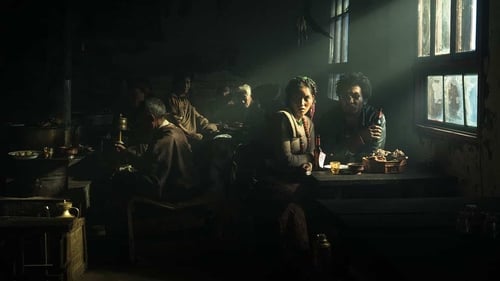
Writer
Stoic truck driver Jinpa picks up a silver dagger wearing hitchhiker in the desolate Kekexili plateau. The stranger suddenly reveals he’s going to kill the man who murdered his father.

Director
Stoic truck driver Jinpa picks up a silver dagger wearing hitchhiker in the desolate Kekexili plateau. The stranger suddenly reveals he’s going to kill the man who murdered his father.

Writer
Tharlo is an orphan. Now grown up, he makes a living as a sheep herder in the village. He has grown a ponytail, so people simply call him “Ponytail”, since nobody remembers his real name anyway. Tharlo has a remarkable memory. He remembers so many things, except his own name. He is now in his forties, and he has yet to have his first woman. Now Tharlo goes to town to take a photo for his identity card. He meets a girl in the barber’s shop who changes the course of his life. He embarks on the journey to find his true self. He sells all his sheep and those entrusted by other villagers to him for care, and decides to use the money to go out into the world with the girl, only to find himself being deceived and cheated by her. Ironically, in his journey of self-discovery, Tharlo has lost his sense of self. As he witnesses in the mirror his ponytail being cut off and leaving him bald, he can no longer see himself as a man with a history that he recognizes.

Director
Tharlo is an orphan. Now grown up, he makes a living as a sheep herder in the village. He has grown a ponytail, so people simply call him “Ponytail”, since nobody remembers his real name anyway. Tharlo has a remarkable memory. He remembers so many things, except his own name. He is now in his forties, and he has yet to have his first woman. Now Tharlo goes to town to take a photo for his identity card. He meets a girl in the barber’s shop who changes the course of his life. He embarks on the journey to find his true self. He sells all his sheep and those entrusted by other villagers to him for care, and decides to use the money to go out into the world with the girl, only to find himself being deceived and cheated by her. Ironically, in his journey of self-discovery, Tharlo has lost his sense of self. As he witnesses in the mirror his ponytail being cut off and leaving him bald, he can no longer see himself as a man with a history that he recognizes.
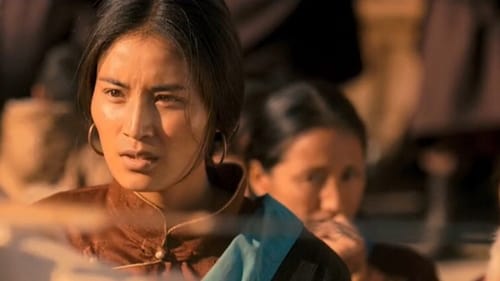
Writer
Two villages in Tibet have competed in archery for a thousand years. This is the story of the competition between Dradong and Nyima who each represent their village. As the story opens, Nyima has won the annual competition and is in love with Dradong's younger sister which angers Dradong. This film depicts Tibetan tradition and encroachment of modern technology.

Director
Two villages in Tibet have competed in archery for a thousand years. This is the story of the competition between Dradong and Nyima who each represent their village. As the story opens, Nyima has won the annual competition and is in love with Dradong's younger sister which angers Dradong. This film depicts Tibetan tradition and encroachment of modern technology.
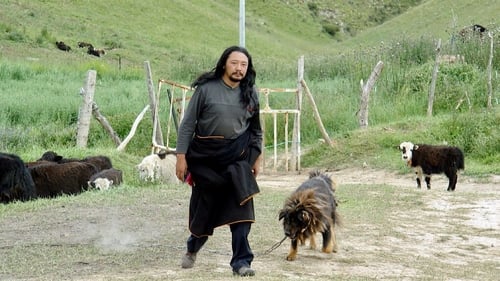
Screenplay
A story of an aged sheepherder, his gruff grown son (who’s having trouble conceiving a child with his wife) and the old man’s Tibetan mastiff hound – a highly prized breed, much sought after by urban Chinese – whose existence is imperiled from all sides.

Director
A story of an aged sheepherder, his gruff grown son (who’s having trouble conceiving a child with his wife) and the old man’s Tibetan mastiff hound – a highly prized breed, much sought after by urban Chinese – whose existence is imperiled from all sides.

Screenplay
A filmmaker searches the Himalayas for an actor and actress to play the lead roles in his Tibetan opera.

Director
A filmmaker searches the Himalayas for an actor and actress to play the lead roles in his Tibetan opera.
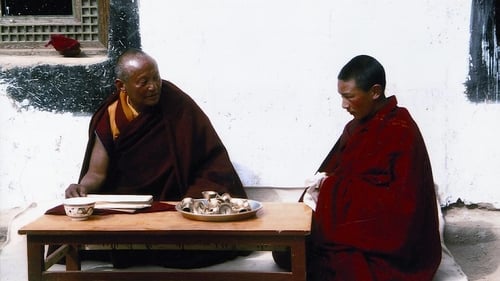
Director
A young Tibetan monk goes back home for the New Year's celebrations. Fascinated by television, he wants to bring his family's television to the monastery to show it to his master.

Director
Pema's graduation film made for Beijing Film Academy, Set in rural Tibet ; it is a timeless allegory of an old nomadic couple searching for a stolen yak.
